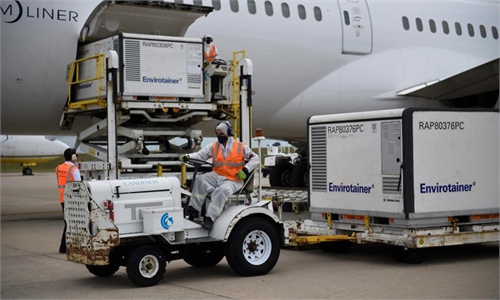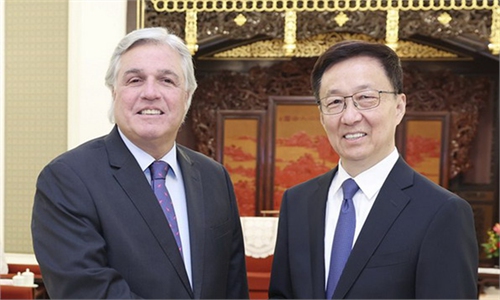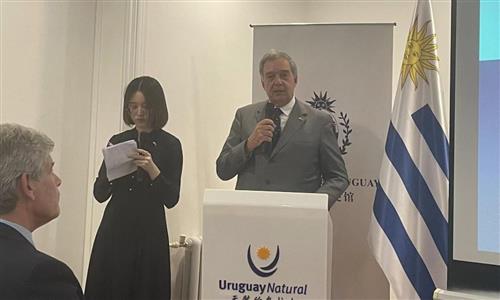China, Uruguay agree to expand agricultural partnership, shore up BRI cooperation: vice minister
More concrete BRI cooperation and exchange road maps are being drafted: Uruguayan vice minister
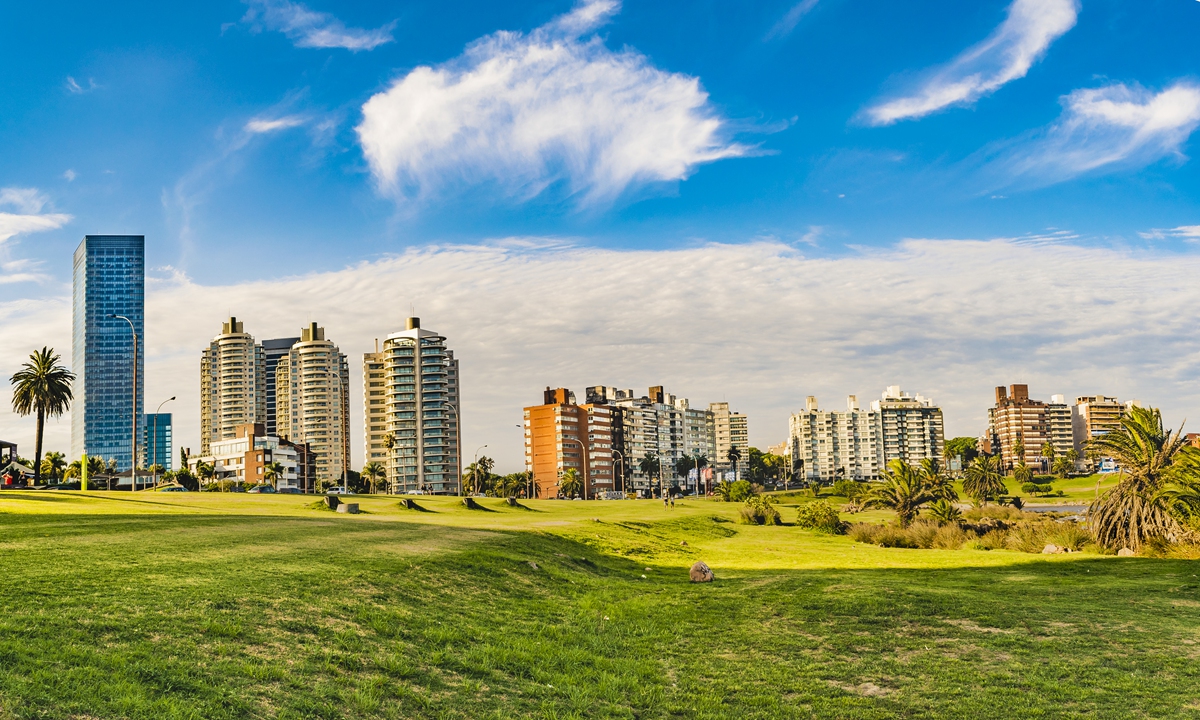
A city view of Montevideo, capital of Uruguay Photo: VCG
Uruguay's Vice Minister of Livestock, Agriculture, and Fisheries Juan Ignacio Buffa finished his 10-day-long trip in China on Saturday, which reaped fruitful results including cooperation agreements in water management and new technologies for agricultural production, and other deals to enhance bilateral economic partnership.
Buffa noted that Uruguay and China are friendly countries that trust each other, and the Latin American country is working intensively to generate a "more concrete roadmap" to deepen technical and cultural exchanges and improve mechanisms to facilitate trade cooperation under the framework of the China-proposed Belt and Road Initiative (BRI).
The Embassy of Uruguay in Beijing announced at a press conference held on Friday that Buffa's visit took place at the invitation of China's Ministry of Agriculture and Rural Affairs. During his 10-day tour in China, Buffa visited five regions of the country, completing an extensive agenda of approximately 30 meetings with Chinese officials from Gansu, Chongqing, Sichuan, Ningxia and Beijing.
Busy itinerary
Buffa's trip followed Uruguayan Foreign Minister Francisco Bustillo Bonasso's five-day visit to China in April, and Minister of Livestock, Agriculture and Fisheries Fernando Mattos' 19-day trip to China earlier, during which Mattos signed a flurry of agreements to deepen agricultural sector cooperation.
"The first thing I would like to mention is why we are here, and I think the reason is because Uruguay and China are partners and friends, and this year remarks the 35th anniversary of the establishment of diplomatic relations between our two countries. It has been an opportunity that has been very much celebrated in our country, with several events [held] throughout the country, in which the Chinese Ambassador to Uruguay Wang Gang has participated," Buffa said in an exclusive interview with the Global Times on Friday.
Over the last 35 years, foreign trade between the two countries has increased from less than $200 million in 1988 to more than $7 billion in 2022.
"Uruguay is a reliable supplier of food to China, which has become the destination of more than 60 percent of our meat exports, more than 50 of our cellulose exports, and over half of our pulp exports, so we came to China in person, a country that is a friend as well as having an important trade flow with us," Buffa said.
In addition, it is important to highlight that Uruguay is the first country of Southern Common Market (MERCOSUR in Spanish) to sign a Memorandum of Understanding (MOU) with China on cooperation under the framework of the BRI, and it has been a fundamental aspect of the good relationship of cooperation between China and Uruguay, Buffa said.
"It is very important for Uruguay to sign the MOU, providing a framework that has made possible the increasing cooperation between the two countries. Cooperation always precedes trade and business, so once we know and understand each other, we can do better business, focusing on the long-term development," Buffa said.
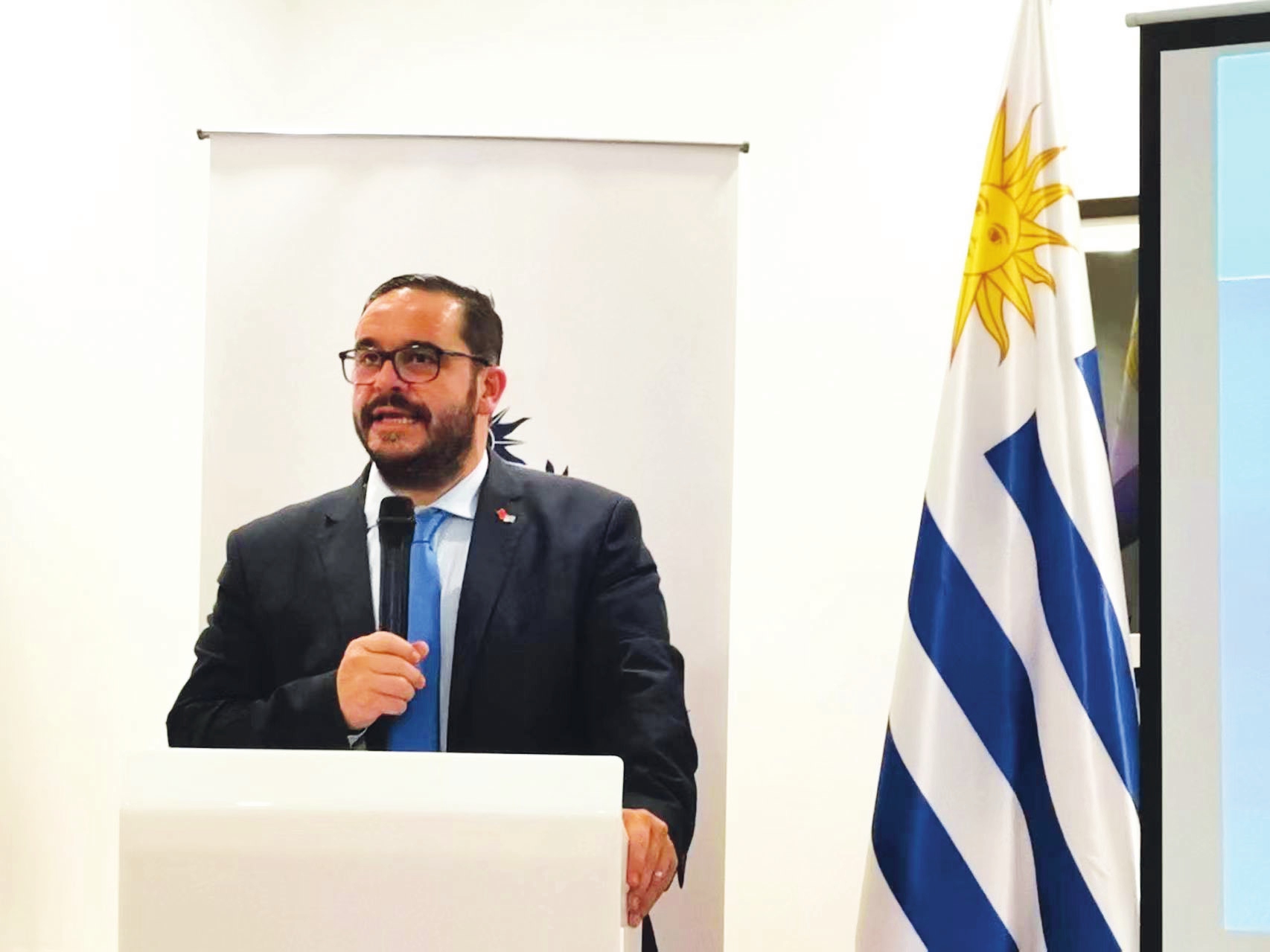
Uruguay's Vice Minister of Livestock, Agriculture and Fisheries Juan Ignacio Buffa Photo: Courtesy of the Embassy of Uruguay in Beijing
Concrete road map
"At present, we are working intensively to come out with a much more concrete road map to deepen our technological and cultural exchanges, advance mechanisms to facilitate trade as well as improve the mechanism of currency application that allows for closer economic exchanges between the two countries," the vice agricultural minister said.
Uruguay has great interest in deepening cooperation with China so as to generate more fruitful results, and "we have great expectations that the mechanism will be used in the future," Buffa said.
In 2021, the BRICS-led New Development Bank started its expansion with the admission of Uruguay as a new member. Buffa noted that the country is looking into the initiative, and has great expectations that this bank will generate more financing for infrastructure works.
"In fact, my tour focused on analyzing how to generate investments needed by infrastructure, such as water management, and in that sense, we believe that this bank can play an important role," he said.
During his 10-day tour in China, Buffa and his entourage visited five regions in the country, including Northwest China's Ningxia Hui Autonomous Region where he participated in the opening ceremony of an international conference on grape and wine-making.
"I would like to highlight two aspects that, for us, are significant. The first is the impressive level of China's infrastructure development. China is advancing in the development of roads, agricultural infrastructure, and irrigation infrastructure of closer interconnection," Buffa said.
Agricultural partnership
"The second is the enormous potential that we have for cooperation with China. The country has witnessed significant progress in a wide variety of agricultural areas, assisted with new and advanced technology, and in this sector we have been detecting concrete opportunities for cooperation," the vice minister said.
Buffa pinpointed to new technologies in water resources management and utilization, and infrastructure construction in China.
There are many other aspects of China that Uruguay can learn from, such as disaster early warning system and improving agricultural productivity, Buffa said, adding that in the field of intelligent agriculture, China could find more room for investment in Uruguay.
In addition, he saw more opportunities to deepen bilateral trade cooperation including in wine and animal meat production.
"We have stressed countless times that China is Uruguay's most important future trading partner, and we also have the privilege of witnessing enhanced cooperation between the two countries, such as the Chinese customs' approval of Uruguayan frozen beef bones to the Chinese market in May," Buffa said.
According to the vice minister, during Mattos' visit to China, the two sides reached a consensus on cooperation in scientific fishing research vessels, as well as an increase in foreign investment in Uruguay's marine resource exploitation.
"We are in the process of finalizing negotiations on two protocols to be able to export to China - wild aquatic products and live snails, and we have high expectations to establish an efficient commercial link in trade," he said.
